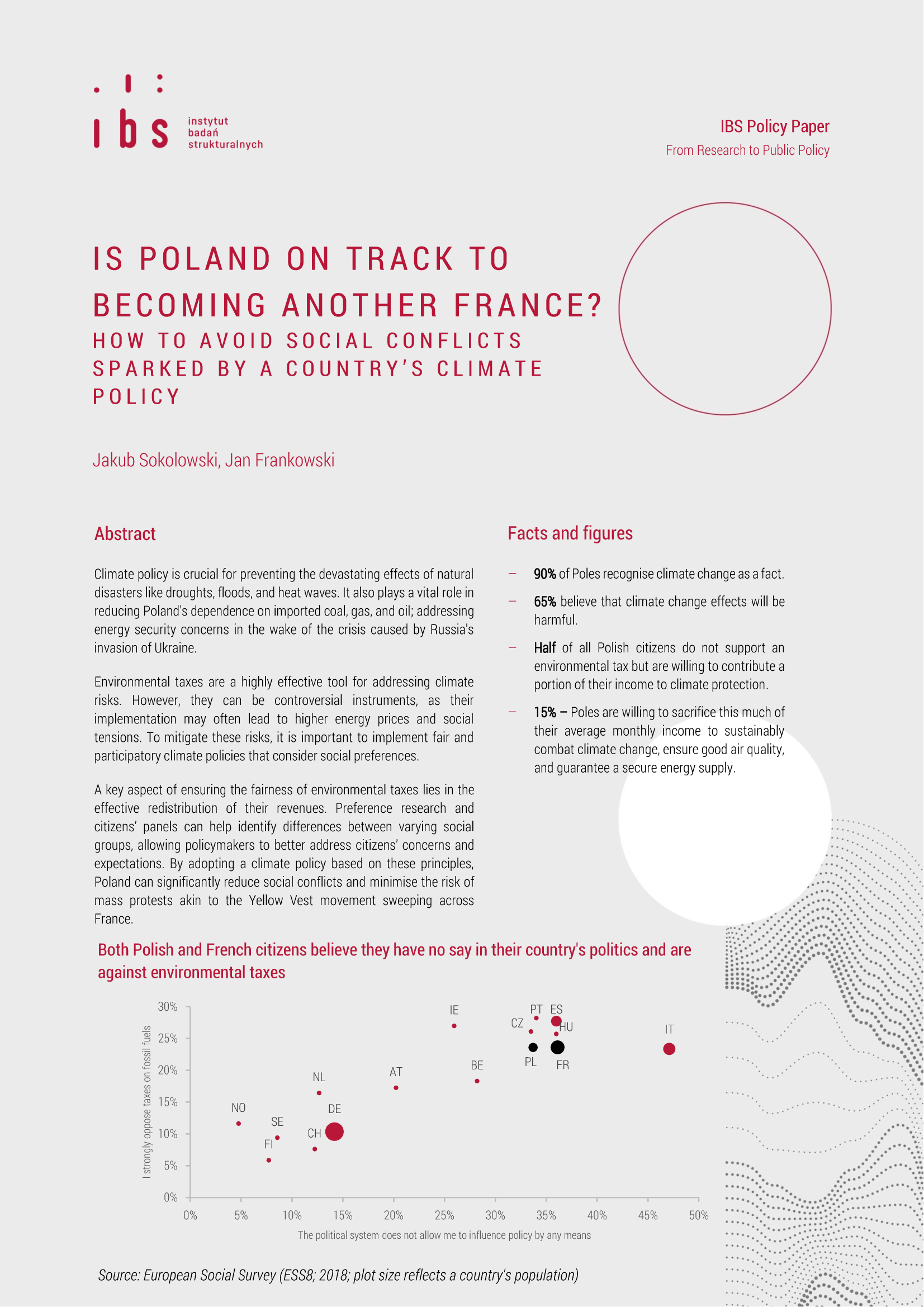Climate policy is crucial for preventing the devastating effects of natural disasters like droughts, floods, and heat waves. It also plays a vital role in reducing Poland’s dependence on imported coal, gas, and oil, addressing energy security concerns in the wake of the crisis caused by Russia’s invasion of Ukraine.
Environmental taxes are a highly effective tool for addressing climate risks. However, they can be controversial instruments, as their implementation may often lead to higher energy prices and social tensions. To mitigate these risks, it is crucial to implement fair and participatory climate policies that consider social preferences.
A key aspect of ensuring the fairness of environmental taxes lies in effectively redistributing their revenues. Preference research and citizens’ panels can help identify differences between varying social groups, allowing policymakers to address citizens’ concerns and expectations better. By adopting a climate policy based on these principles, Poland can significantly reduce social conflicts and minimise the risk of mass protests akin to the Yellow Vest movement sweeping across France.

The authors would like to thank Jan Rutkowski for his valuable comments and help in compiling this report. European Climate Foundation financially supported the research. The views expressed in this publication are those of its authors and do not necessarily represent the views of the Institute for Structural Research. The usual disclaimers apply.

